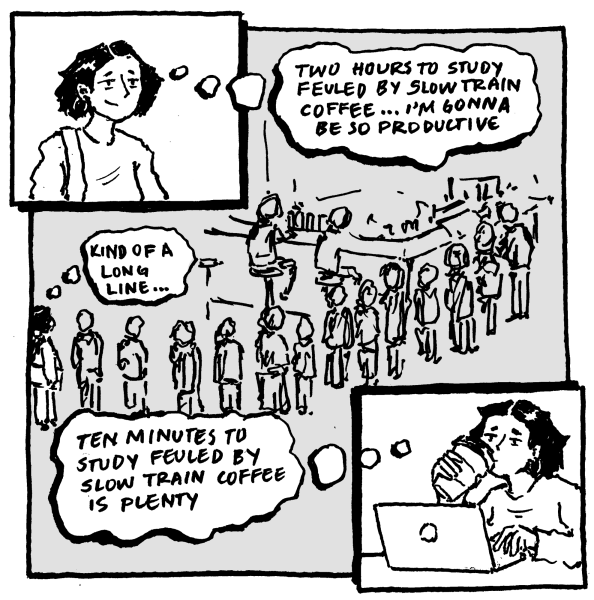Oberlin’s Foreign Language Offerings Fall Short of Demand
Despite the availability of an annual Winter Term project, two Shansi opportunities for graduates, and two study abroad programs in India, the languages of Hindi and Urdu are left out of the Oberlin academic scene.
Over half a billion people speak Hindi globally, second only to Mandarin Chinese. While this number is largely concentrated within the Indian subcontinent, it is also spoken in countries such as Mauritius, Fiji, Suriname, Guyana, Trinidad & Tobago, Nepal, and among immigrants in the U.S., U.K., and Australia — to name only a few.
This figure surpasses the number of global Spanish, Italian, Russian, French, German, Japanese, and Arabic speakers — all languages which are, at least to a certain degree, represented at Oberlin. There are over 150 million people in the world who speak Urdu, a number that definitely surpasses the speakers of Ancient Greek and Latin, dead languages that are presented by a total of 12 courses being taught at Oberlin this spring. Over 50 million Indians speak Urdu, and it is the national language of Pakistan. Like Hindi, Urdu is widely spoken across the U.S., Britain, Canada, and parts of the Middle East.
For a community that considers itself ‘woke’ and discourses constantly about Eurocentrism, the silence on this issue is disappointing. While it is definitely laudable that East Asian Studies is a distinct and extremely popular department at Oberlin, and East Asian languages are deservingly given a strong focus, the neglect of third-world languages is extremely disheartening.
Further, the Arabic courses provided at Oberlin are woefully insufficient. There is a single professor of Arabic at Oberlin, and one cannot study the subject beyond a 200-level course. Despite the overwhelming demonstrated demand for the language, the College has done little to accommodate the need for a more rigorous curriculum.
Not only is this disregard in direct contrast to the values Obies are so quick to preach, but it is also a huge missed opportunity for those interested in, perhaps, getting a job? Hindi and Urdu are both listed as critical languages by the American Foreign Service Association, meaning they are unique, desirable skills for those interested in jobs pertinent to national security, international relations, and politics.
Furthermore, India, alongside China, is the largest emerging market in the world, with a large youth population, en route to being an economic power player in the global arena. Hindi and Urdu will be just as hot a commodity as Mandarin is today, and Obies are missing out on the opportunity to be competitive candidates in the job market. Particularly with the high density of Obies interested in international studies, global economics, and politics, it seems almost callous that the only resource available at Oberlin to learn Hindi or Urdu is for the one or two students awarded the Critical Language Scholarship.
White students flood courses such as Modern South Asia: From British Imperialism to Present, Political Economy of Development in Asia, and ‘Bollywood’s’ India: An Introduction to Indian Cinema. However, education on these topics is acutely incomplete without having even a basic understanding of the languages spoken in these regions. Oberlin cannot truly offer an international education to its students nor claim to be an ally to the third world, particularly South Asia, if it doesn’t offer a single Hindi or Urdu course. It is simply ignoring too large a community. And to those saying that no one has demonstrated this need before, this is me demonstrating.




